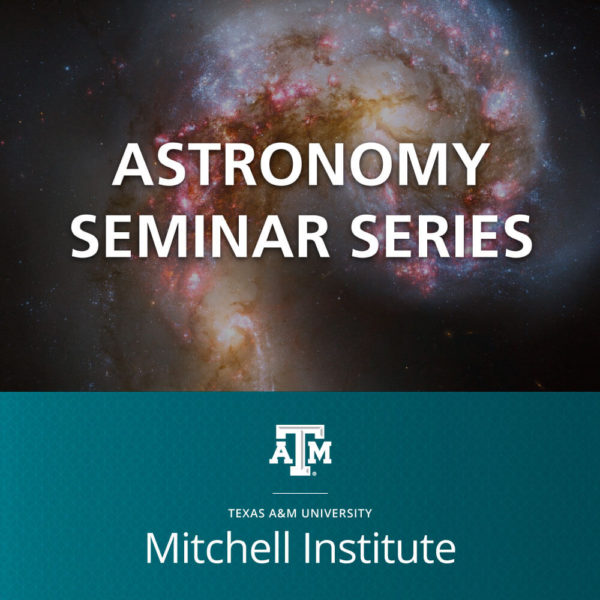
Speaker:
Griffin Hosseinzadeh (University of Arizona)
Host:
Stephanie Ho
Location:
Address:
Mitchell Institute for Fundamental Physics & Astronomy
College Station, Texas 77843
Last year, for the first time, the IAU Transient Name Server surpassed 20,000 astronomical transient reports. This presents both an enormous opportunity, in that previously rare classes of transients are now discovered routinely, but also a wake-up call that traditional techniques of classification and analysis are not cut out for the job. In this seminar, I will describe the landscape of transient astronomy in the coming decade: the aspects of stellar physics we can constrain using large samples of stellar explosions, as well as the data science methods our field must adopt in order to take full advantage of our observations. For example, initial samples of tens of core-collapse supernovae have provided surprising clues about pre-explosion eruptions in massive stars. Orders-of-magnitude larger samples from the upcoming Vera C. Rubin Observatory will determine how commonly supernovae interact with circumstellar material from these eruptions. Likewise, modeling of dozens of hydrogen-poor superluminous supernovae have shown that their light curves are broadly consistent with a magnetar power source, but larger and higher-quality data sets have begun to show that this cannot be the full picture. In both cases, modern cyberinfrastructure (e.g., real-time discovery alerts, robotic follow-up observations, robust image subtraction, machine-learning classification) will be key to maximizing the science return from powerful new discovery engines.
Copyright © 2024. All rights reserved, Texas A&M University Trademark | Texas A&M University, College Station, Texas 77843